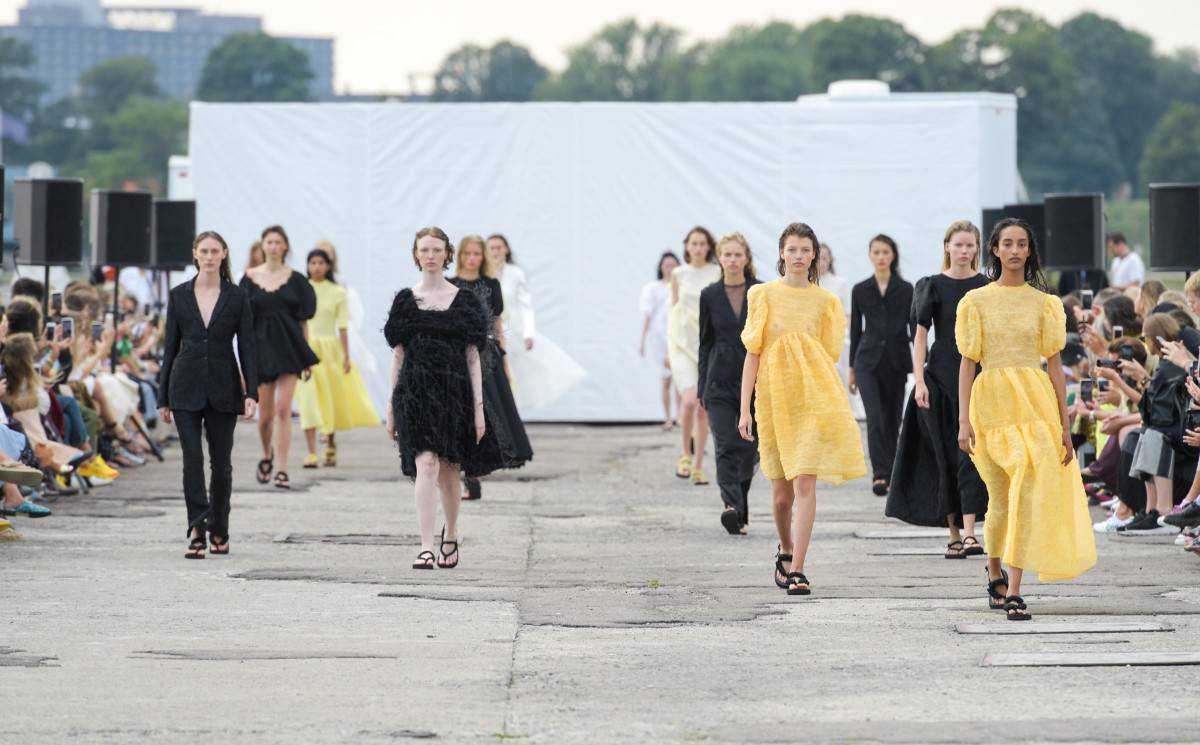Copenhagen Vogue Week publishes gross annual sustainability report
01 February, 2021

A time into its “radical” sustainability program announced in January 2020, Copenhagen Vogue Week has published its first annual report, as it looks to hold itself accountable and maintain transparency, while it encourages other manner companies to do the same.
The report notes that 2020 was an “extraordinarily eventful and challenging year” and that the global pandemic “unleashed unpredictability, unprecedented changes and a fresh normal on the world”. Nevertheless, it adds that 2020 also gave “a much-needed give attention to social concerns and injustice” with dialogue on sexism, inequality, racism and the surroundings.
Cecilie Thorsmark, leader of Copenhagen Manner Week, said in a good statement: “Despite a challenging year, we believe the status of our Sustainability Actions Plan shows the potential of our approach and three-season targets to inspire and push fashion corporations to embrace even more sustainable business practices. Although struggling to meet each of the goals placed for 2020, most goals were accomplished and we anticipate continuing the task.”
As the fashion organisation reviews that it didn’t satisfy most of its goals set for 2020, it did track record what it calls “significant milestones” in becoming considerably more sustainable.
In the article, it notes that progress was manufactured in the development of the 2023 sustainability requirements for participating brands. So that you can be a part of its trend week by 2023, makes will have to adhere to minimum standards along with get yourself a minimum points rating in a sustainability study.
Throughout 2020, in collaboration with Rambøll, In futurum and Dansk Fashion and Textile, Copenhagen Fashion Week is rolling out a carefully weighted stage program, which considers both impact and challenge level, to enable the technical implementation of the requirements in an online survey for brands to fill out. On January 20, 2021, the organisation kicked off a pilot test out of the sustainability requirements study system with 12 makes. The effects of the pilot test drive it added allows it to determine a baseline rating for determining the quantity of points makes must achieve by 2023 to take part in fashion weeks.
In addition, Copenhagen Manner Week initiated dialogues with the neighborhood trade fairs to strive towards a closer alignment of its sustainability goals. The trade good Ciff has focused on initiating an activity of adopting the 2023 sustainability requirements “in a manner that resonates with and makes value for his or her own program as a fashion good, their business design and their exhibitors and purchasers,” explained manner week organisers.
This move ensures that Ciff, by 2023, will demand brands to adhere to Copenhagen Fashion Week’s minimum standards and acquire the minimum score needed as a way to exhibit.
Copenhagen Vogue Week to push ahead using its sustainability plan
The purpose of the Sustainability Action Plan 2020-2022: Reinventing Copenhagen Fashion Week, announced this past year was to reduce not merely its impact on the surroundings but also to innovate its business design and inspire and motivate an acceleration of industry change.
At the press meeting announcing the action method, Thorsmark explained: “All industry players - including fashion weeks - need to be in charge of their actions and become willing to change the way business is performed. The timeframe for averting the devastating ramifications of climate change on earth and people is significantly less than ten years, and we’re already witnessing its catastrophic impacts today. Quite simply, there may be no status quo.”
A number of the key problems were to reduce its climate effects by 50 percent, rethink waste devices in all respects of event production, with zero waste products as the goal by 2022, together with implement a new group of sustainability standards to force the sector towards what it cell phone calls “comprehensive change”.
To address its climate impact, especially in relation to lessening its global greenhouse gas emission, Copenhagen Trend Week explains that it has collaborated with Climaider, a qualified gold normal carbon offset company, to continue measuring, lessening and counteracting our CO2 emissions.
The August 2020 fashion week emitted 22.38 tonnes of CO2, representing a 50 percent reduction in our baseline of 45 tonnes of CO2, measured at the August 2019 edition. It did remember that its emissions effortlessly transpired in 2020 due to low international travel, along with both fewer and small physical incidents and that once the pandemic is normally over it will make a committed action to reducing its effect.
Looking ahead the article states that a significant focus for 2021 is to push for larger sector adoption of its 2023 sustainability requirements. The ambitious purpose is to see these specifications rolled out “extra broadly” in the style sector in Denmark and within other key global platforms.
“Put simply, we will make an effort to gather more industry actors around the same sustainability eyesight and an identical framework and methodology for creating change,” adds Copenhagen Manner Week.
In addition, Copenhagen Manner Week will support makes in executing zero-waste show practices and pursuing partnerships with green venues. The organisation is also looking to add targets on racism and sexism to its three-year action program in 2021 and they are along the way of updating the Danish Vogue Ethical Charter.
“The pandemic has increased the give attention to shared learning, knowledge sharing and helping one another; it is our desire to harness this momentum a lot more in the future to foster transformation,” concluded Copenhagen Fashion Week.
Another edition of Copenhagen Trend Week for autumn/winter 2021 occurs from February 2-4.
Source: fashionunited.uk
